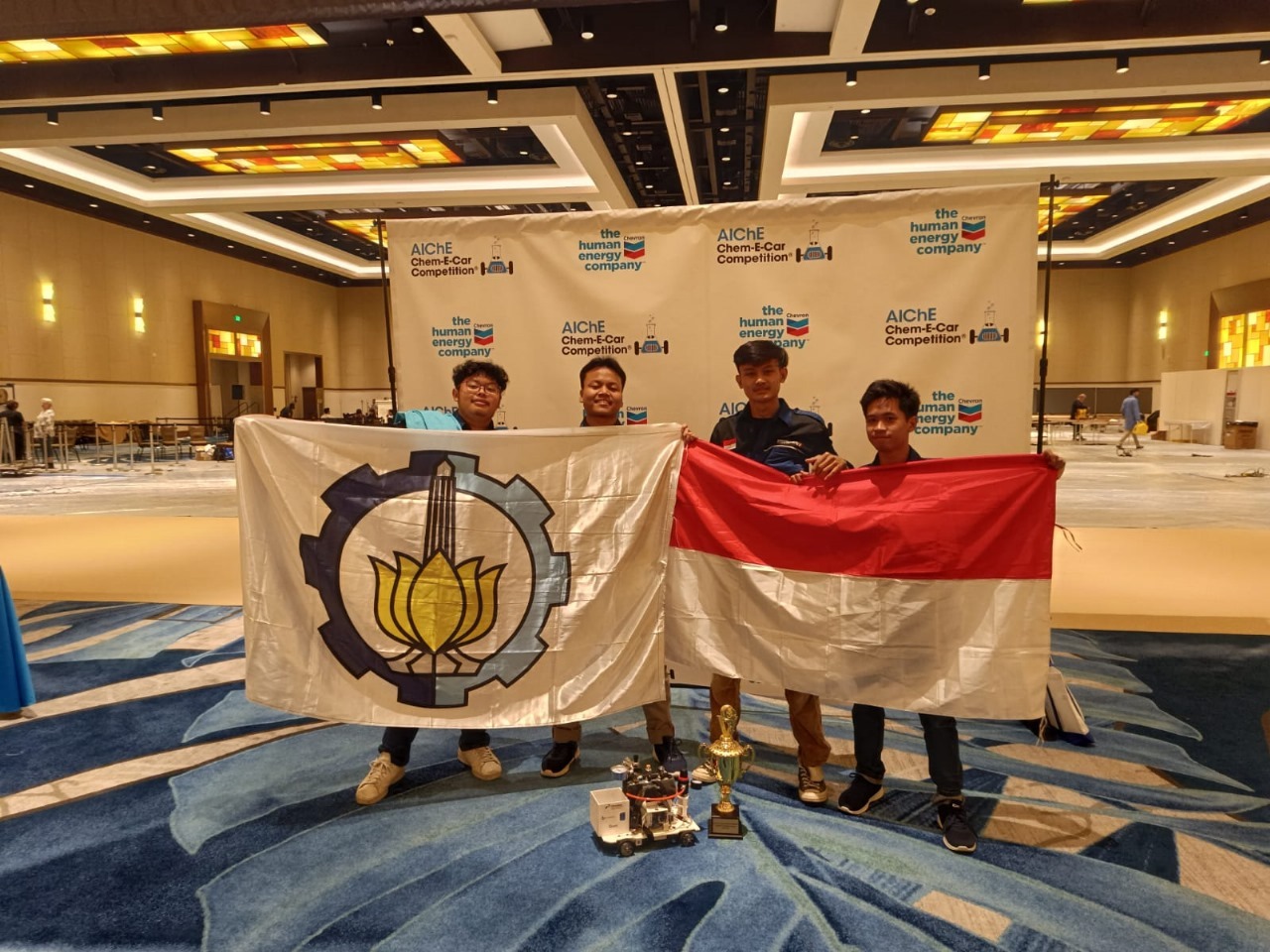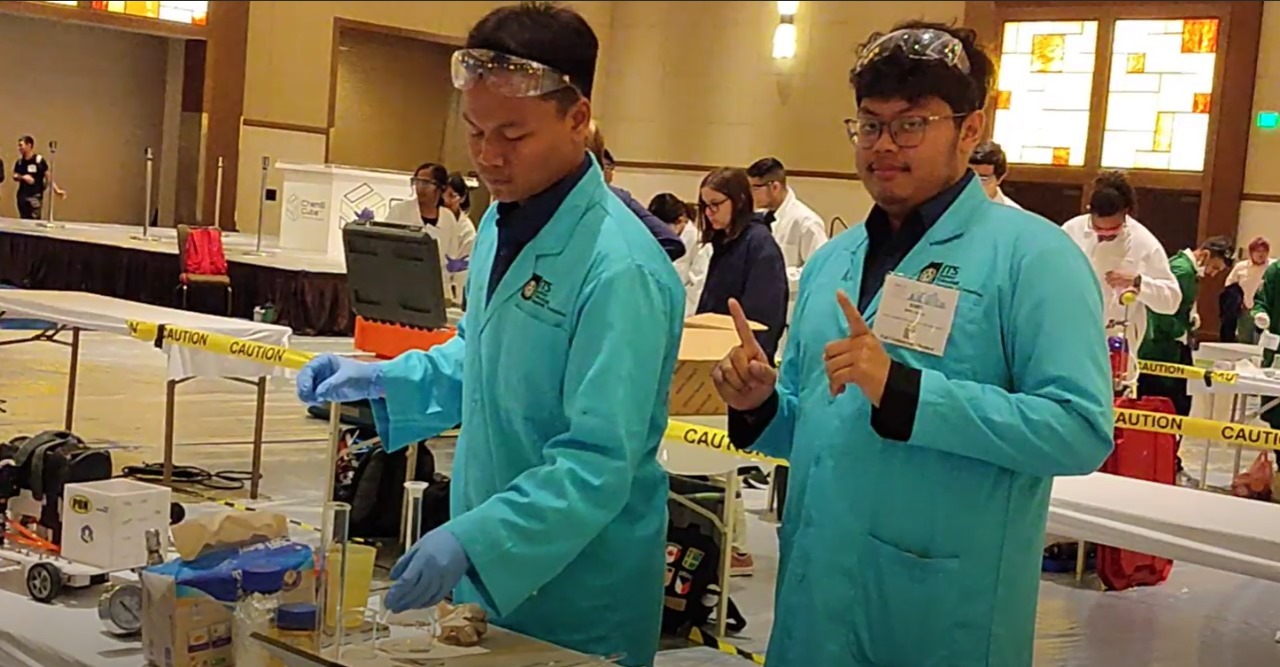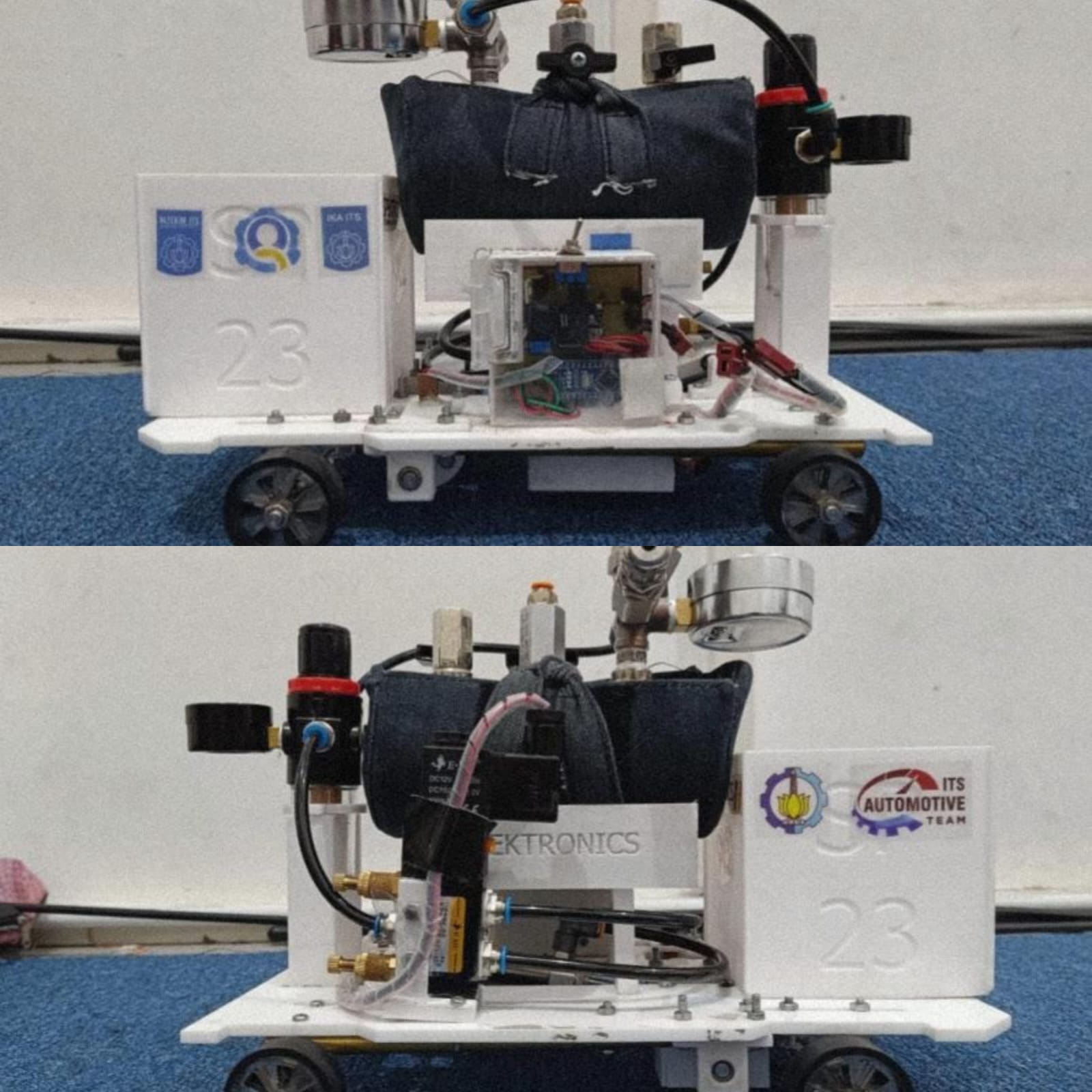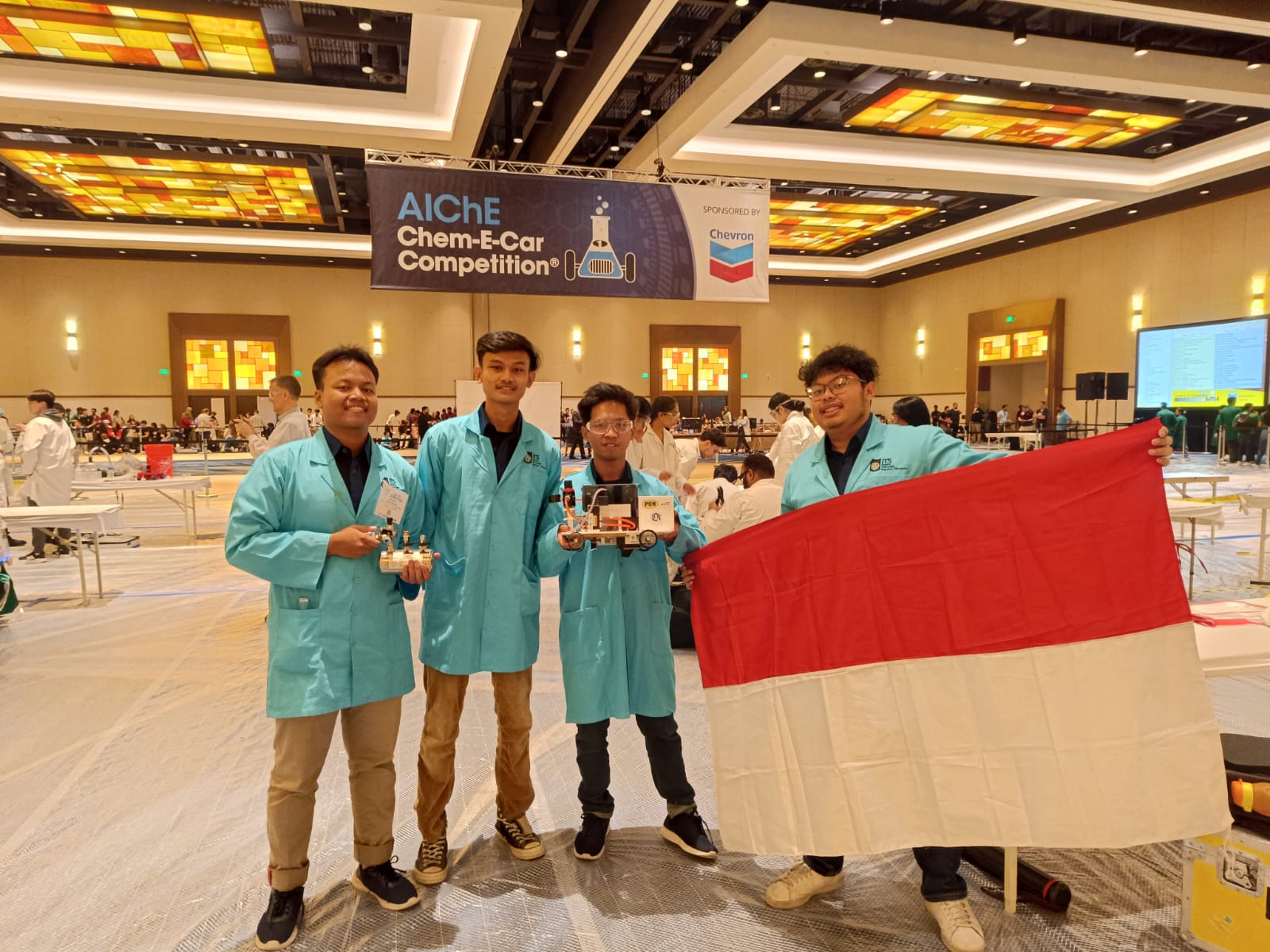Again, ITS Spektronics was successful in Chem E-Car in the United States

The ITS Spektronics team represented by (from left) Bimo Bintang Aulia, Dheas Pinda Prayoga, Wiji Dharma Aditiya, Achmad Fadjar Maulana Firdaus successfully won 2nd place in the United States
ITS Campus, ITS News – The chemical reaction-powered prototype car team, Spektronics, from the Institut Teknologi Sepuluh Nopember (ITS) has once again triumphed in the international arena. After previously succeeding in being selected for the global final at the Chem E-Car Competition in India, the ITS Spektronics Team finally succeeded in occupying the championship podium again, namely 2nd place in the Chem-E-Car Global Race Competition held in Florida, United States which ended, Sunday (5/11) local time.
Bimo Bintang Aulia, Head of the ITS Spektronics Team who competed in Uncle Sam’s Country, stated that in this championship the participants were selected from various universities in the world. There were 46 finalist teams competing and ITS managed to become second best, beating various top-world campuses such as Toronto University and Tsinghua University. “Spektronics is also the only proud team from Indonesia competing here,” said the third-year student proudly.

(from left) Dheas Pinda Prayoga and Bimo Bintang Aulia, members of the ITS Spektronics Team preparing the Spektronics 23 prototype car to race in the Chem E-Car event in Florida, USA
This prestigious championship organized by the American Institute of Chemical Engineers (AIChE) consists of several stages. Each team must pass selection at the Chem-E-Car Regional Competition stage in each region. Then, in preparation for the final stage, the participating teams must undergo a safety and inspection session, one day before the race competition takes place to test the car’s suitability and optimal performance.
Carrying the latest innovations, Bimo revealed that the ITS Spektronics Team brought the latest version of the Spektronics 23 car to compete in this competition. This car utilizes the reaction of air pressure from the decomposition of hydrogen peroxide (H2O2) with a ferric chloride catalyst (FECl3) to produce a power source. “Then this air pressure is distributed through a pneumatic system which makes it a strong car driver,” he explained.

(from above) Front and rear views of Spektronics 23, the prototype of the chemical reaction-powered car proud of the ITS Spektronics Team which is driven by air pressure
Not only does it strengthen performance, but this car is also equipped with integrated technology in the form of a solenoid valve feature which can be controlled automatically using an Arduino nano. This feature provides a better ability to control air pressure and allows the car to move with greater accuracy. “This technology increases efficiency by up to 50 percent from our previous car,” explained Bimo.
Through this innovation, the Spektronics 23 car, which was developed by a team that also includes Wiji Dharma Aditiya, Achmad Fadjar Maulana Firdaus, and Dheas Pinda Prayoga, must cover a distance of 25 meters. Through this challenge, the accuracy of the car’s driving chemicals is also assessed by stopping the car as close as possible to the finish line. “Our team’s error was 0.112 meters, only 0.05 meters different from Auburn University, United States, which came out as 1st place,” he said.

The ITS Spektronics Team was the only representative from Indonesia with the Spektronics 23 car in the Chem E-Car contest held by AIChE in Florida, United States
During the competition, the ITS Spektronics Team admitted that they did not experience many significant obstacles. Logistical problems in sending cars by plane which causes some parts of the car to be repaired can be overcome well at the competition location. “We have made quite thorough preparations since last June, so we didn’t face many obstacles,” he admitted.
Not to forget, Bimo said that the success of the Spektronics Team also involved contributions from various parties, including ITS which had provided support both in terms of material and moral support. “This victory is a good step for us to continue to make the campus proud in various subsequent international competitions,” concluded Bimo optimistically. (ITS Public Relations)
Reporter: Lathifah Sahda
Related News
-
ITS Strengthens Sustainable Clean Energy Collaboration with Singapore
ITS Campus, ITS News — To further solidify strategic cooperation among global higher education institutions, a delegation from the
November 06, 2023 15:11 -
Supporting a Healthy Environment, ITS Inaugurates Centralized Hazardous Waste Management Facility
ITS Campus, ITS News — As a form of support for healthy environmental management, Institut Teknologi Sepuluh Nopember (ITS)
November 06, 2023 15:11 -
ITS Reaffirms Commitment to Gender Mainstreaming through Leadership School
ITS Campus, ITS News — To support inclusive and sustainable development by prioritizing justice and inclusiveness, Institut Teknologi Sepuluh
November 06, 2023 15:11 -
Providing Training, ITS Supports Hygienic and Safe Culinary Zones in Surabaya
ITS Campus, ITS News — Institut Teknologi Sepuluh Nopember (ITS) is fully supporting the strategic steps taken by the
November 06, 2023 15:11
